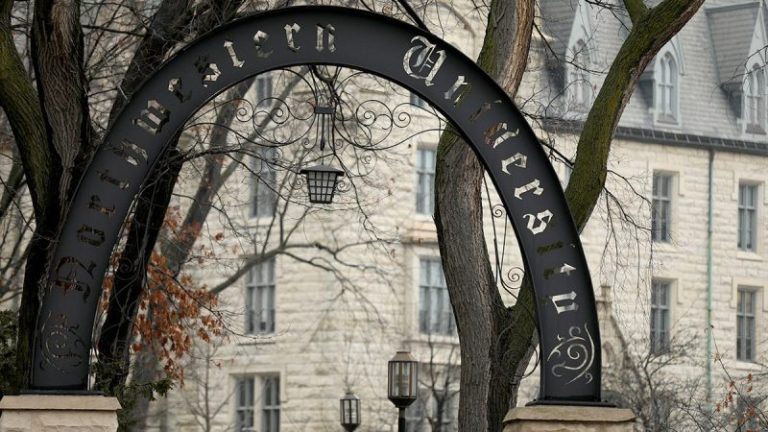Like its sister metal gold, silver has been attracting renewed attention as a safe-haven asset.
Although silver continues to exhibit its hallmark volatility, a silver bull market is well underway in 2025.
Experts are optimistic about the future, and as the silver price’s momentum continues in 2025, investors are looking for price forecasts and asking, “What was the highest price for silver?”
The answer reveals how much potential there is for the silver price to rise.
Read on for a look at silver’s historical moves, its new all-time high price and what they could mean for both the price of silver today and the white metal’s price in the future.
How is silver traded?
Before discovering what the highest silver price was, it’s worth looking at how the precious metal is traded. Knowing the mechanics can be useful in understanding why and how its price changes on a day-to-day basis and beyond.
Put simply, silver bullion is traded in dollars and cents per ounce, with market activity taking place worldwide at all hours, resulting in a live silver price. Key commodities markets like New York, London and Hong Kong are just a few locations where investors trade the metal. London is seen as the center of physical silver trade, while the COMEX division of the New York Mercantile Exchange, called the NYMEX, is where most paper trading is done.
There are two popular ways to invest in silver. The first is through purchasing silver bullion products such as bullion bars, bullion coins and silver rounds. Physical silver is sold on the spot market, meaning that to invest in silver this way, buyers pay a specific price for the metal — the silver price per ounce — and then have it delivered immediately.
The second is accomplished through paper trading, which is done via the silver futures market, with participants entering into futures contracts for the delivery of silver at an agreed-upon price and time. In such contracts, two positions can be taken: a long position to accept delivery of the metal or a short position to provide delivery.
Paper trading might sound like a strange way to get silver exposure, but it can provide investors with flexibility that they wouldn’t get from buying and selling bullion. The most obvious advantage is perhaps the fact that trading in the paper market means silver investors can benefit long term from holding silver without needing to store it. Furthermore, futures trading can offer more financial leverage in that it requires less capital than trading in the physical market.
Market participants can also invest in silver through exchange-traded funds (ETFs). Investing in a silver ETF is similar to trading a stock on an exchange, and there are several silver ETFs to choose from. Some ETFs focus on physical silver bullion, while others focus on silver futures contracts. Still others focus on silver stocks or follow the live silver price.
What is silver’s all-time high price?
The silver all-time high was US$56.86, which it set on November 28, 2025.
However, until October 9 of this year, the white metal’s all-time high had been the same for 45 years — silver’s former all-time high was US$49.95, and it was set on January 17, 1980.
It’s worth unpacking what happened, because price didn’t exactly reach that level by honest means.
As Britannica explains, two wealthy traders called the Hunt brothers attempted to corner the market by buying not only physical silver, but also silver futures — they took delivery of those silver futures contracts instead of taking legal tender in the form cash settlements. Their exploits ultimately ended in disaster: On March 27, 1980, they missed a margin call and the silver market price plunged to US$10.80. This day is infamously known as Silver Thursday.
That record silver price wouldn’t be tested again until April 2011, when it reached US$47.94. This was more than triple the 2009 average silver price of US$14.67, with the price uptick coming on the back of very strong investment demand.
So what happens next? While silver has officially broken its 1980 peak, it is still well below that price point adjusted for inflation. It remains to be seen just how high silver can go.
Silver’s price history since 2011
Silver price chart, November 10, 2010, to November 10, 2025.
Chart via SilverPrice.org.
After its 2011 peak, silver’s price pulled back over the following years before settling between US$15 and US$20 for much of the second half of last decade. An upward trend in the silver price started in mid-2020, when it was spurred on by the economic uncertainty surrounding the COVID-19 pandemic. The price of silver breached the key US$26 level in early August 2020, and soon after tested US$30. However, it failed to make substantial progress past that.
In the spring of 2023, the silver price surged by 30 percent, briefly rising above US$26 in early May; however, the precious metal cratered back down to US$20.90 in early October. Later that month, silver advanced toward the US$23 level on the back of safe-haven demand due to the outbreak of the Israel-Hamas war.
Following remarks from US Federal Reserve Chair Jerome Powell, speculation about interest rate reductions sent the price of silver to US$25.48 on November 30, its highest point for the fourth quarter.
After starting 2024 on a low note, the white metal saw gains in March on rising Fed rate cut expectations. The resulting upward momentum led silver to reach a Q1 high of US$25.62 on March 20 before breaking through the US$30 mark on May 17. The silver price reached a then 12 year high of US$32.33 on May 20.
In Q3, the metal’s price slid down below the US$27 mark to as low as US$26.64 by August 7 alongside its industrial cousin copper. Heading into Q4 2024, silver reversed course to the upside, tracking the record breaking moves in the gold price. Silver once again breached the US$30 level on September 13 and continued higher.
On October 21, the silver price moved as high as US$34.20 during the trading day, up more than 48 percent since the start of the year and its highest level in 12 years. However, silver spent the rest of the year in decline, bottoming out at US$28.94 on December 30.
Silver’s price performance in 2025
Silver price chart, December 31, 2024, to November 28, 2025.
The silver price experienced a momentum shift at the start of 2025, breaking through the US$30 barrier as early as January 5, and reaching US$31.31 by January 29. The metal continued to post gains through much of February and March, climbing to US$32.94 on February 20 and then peaking at its quarterly high of US$34.21 on March 28.
Following US President Donald Trump’s tariff announcements on April 2, silver slumped to below US$30. While the Trump administration’s tariff policies have been largely beneficial for safe-haven assets like precious metals, there were concerns that the threat of tariffs could weaken industrial demand, which could cool price gains in the silver market.
Yet those concerns were pushed to the back burner as recent economic and geopolitical events have raised analysts’ expectations of a September rate cut by the Fed. The benchmark rate has not changed since November 2024.
On June 5, the silver price rose to a 13 year high of US$36.05 in early morning trading, before retreating toward the US$35.50 mark. By June 16, the white metal had broken through the US$37 mark for the first time since May 2011.
In July, increasing geopolitical strife in the Middle East and Russia-Ukraine coupled with a positive outlook for China’s solar power industry proved price positive for both silver’s precious metals and industrial angles.
The silver price overtook the US$39 level to reach US$39.24 on July 22.
These same forces, coupled with the nearly unanimous rate cut expectations, launched the price of silver to over US$40 on August 31 for the first time since 2011, and by September 3 it had climbed as high as US$41.45. Silver continued climbing through September, progressively breaking level after level to top US$47 by the month’s end.
Silver started Q4 by continuing its ascent, breaking through its 2011 peak and topping US$48 on October 3.
The silver price officially surpassed its all-time US dollar high of US$49.95 — set in 1980 on October 9 — as it climbed to US$51.14 during trading that day. The white metal had already beaten its all-time highs in most currencies, including Canadian dollars and Australian dollars, on September 22.
It continued climbing even higher on the safe-haven demand fundamentals behind its 2025 momentum. Helping drive that demand in October was escalating trade tensions between the US and China, leading to export controls on additional rare earth metals by China and threats of 100 percent tariffs on Chinese imports by the US.
While silver pulled back to around US$48 in late October, news that the US government shut down had come to an end on November 9 drove the silver price back above US$50.
Silver’s foray above the US$56 level on November 28 came on the back of an outage at the Comex, where trading was briefly halted due to a ‘cooling issue’ at a CyrusOne data center used by the exchange.
Silver supply and demand dynamics
Market watchers are curious as to whether the silver price will continue its upward trajectory in 2025. Only time will tell, and it will depend on the white metal’s ability to remain above the critical US$30 level.
Like other metals, the silver spot price is most heavily influenced by supply and demand dynamics. However, as the information above illustrates, the silver price can be highly volatile. That’s partially due to the fact that the metal is subject to both investment and industrial metal demand within global markets.
In other words, it’s bought by investors who want it as a store of wealth, as well as by manufacturers looking to use it for different applications that are incredibly varied. For example, silver has diverse technological applications and is used in devices like batteries and catalysts, but it’s also used in medicine and in the automotive industry.
In terms of supply, the world’s three top producers of the metal are Mexico, China and Peru. Even in those countries silver is usually a by-product — for instance, a mine producing primarily gold or lead might also have silver output.
The Silver Institute’s latest World Silver Survey, put together by Metals Focus, outlines a 0.9 percent increase in global mine production to 819.7 million ounces in 2024. This was in partly the result of a return to operations at Newmont’s (TSX:NGT,NYSE:NEM,ASX:NEM) Peñasquito mine in Mexico following a suspension of activity brought about by strike action among workers and improved recoveries out of Fresnillo (LSE:FRES,OTC Pink:FNLPF) and MAG Silver’s (TSX:MAG,NYSEAMERICAN:MAG) Juanicipio. Silver output also increased in Australia, Bolivia and the US.
The firm is forecasting a 1.9 percent rise in global silver mine production to 823 million ounces in 2025. Much of that growth is expected to come out of Mexico, and it is also projecting output will rise in Chile and Russia.
Lower production from Australia and Peru will offset some of these gains.
Looking at demand, Metals Focus sees growth in 2025 flatlining as industrial fabrication takes a hit from the global tariff war. This could be tempered by an anticipated rebound in demand from physical investment in silver bars and coins.
The silver market is expected to experience a substantial deficit of 117.6 million ounces in 2025, amounting to the sixth straight year of supply shortage for the metal.
Is the silver price manipulated?
As a final note on silver, it’s important for investors to be aware that manipulation of prices is a major issue in the space.
For instance, in 2015, 10 banks were hit in a US probe on precious metals manipulation. Evidence provided by Deutsche Bank (NYSE:DB) showed “smoking gun” proof that UBS Group (NYSE:UBS), HSBC Holdings (NYSE:HSBC), the The Bank of Nova Scotia (TSX:BNS) and other firms were involved in rigging silver rates from 2007 to 2013. In May 2023, a silver manipulation lawsuit filed in 2014 against HSBC and the Bank of Nova Scotia was dismissed by a US court.
JPMorgan Chase & Co. (NYSE:JPM) has been long at the center of silver manipulation claims as well. For years the firm has been in and out of court for the accusations. In 2020, JPMorgan agreed to pay US$920 million to resolve federal agency probes regarding the manipulation of multiple markets, including precious metals.
In 2014, the London Silver Market Fixing stopped administering the London silver fix, which had been used for over a century to fix the price of silver. It was replaced by the LBMA Silver Price, which is run by ICE Benchmark Administration, in a bid to increase market transparency.
Market watchers like Ed Steer have said that the days of silver manipulation are numbered, and that the market will see a significant shift when the time finally comes.
Investor takeaway
Silver has neared US$50 multiple times, including its all-time high, and as momentum continues for the silver price in 2025 investors are wondering if it could reach those heights once again.
While it’s impossible to know for sure what’s next for silver, keeping an eye on the factors driving its performance, including gold’s performance, geopolitics, the economy and industrial demand, will help investors make decisions on when to buy and sell.
Securities Disclosure: I, Melissa Pistilli, currently hold no direct investment interest in any company mentioned in this article.
This post appeared first on investingnews.com










